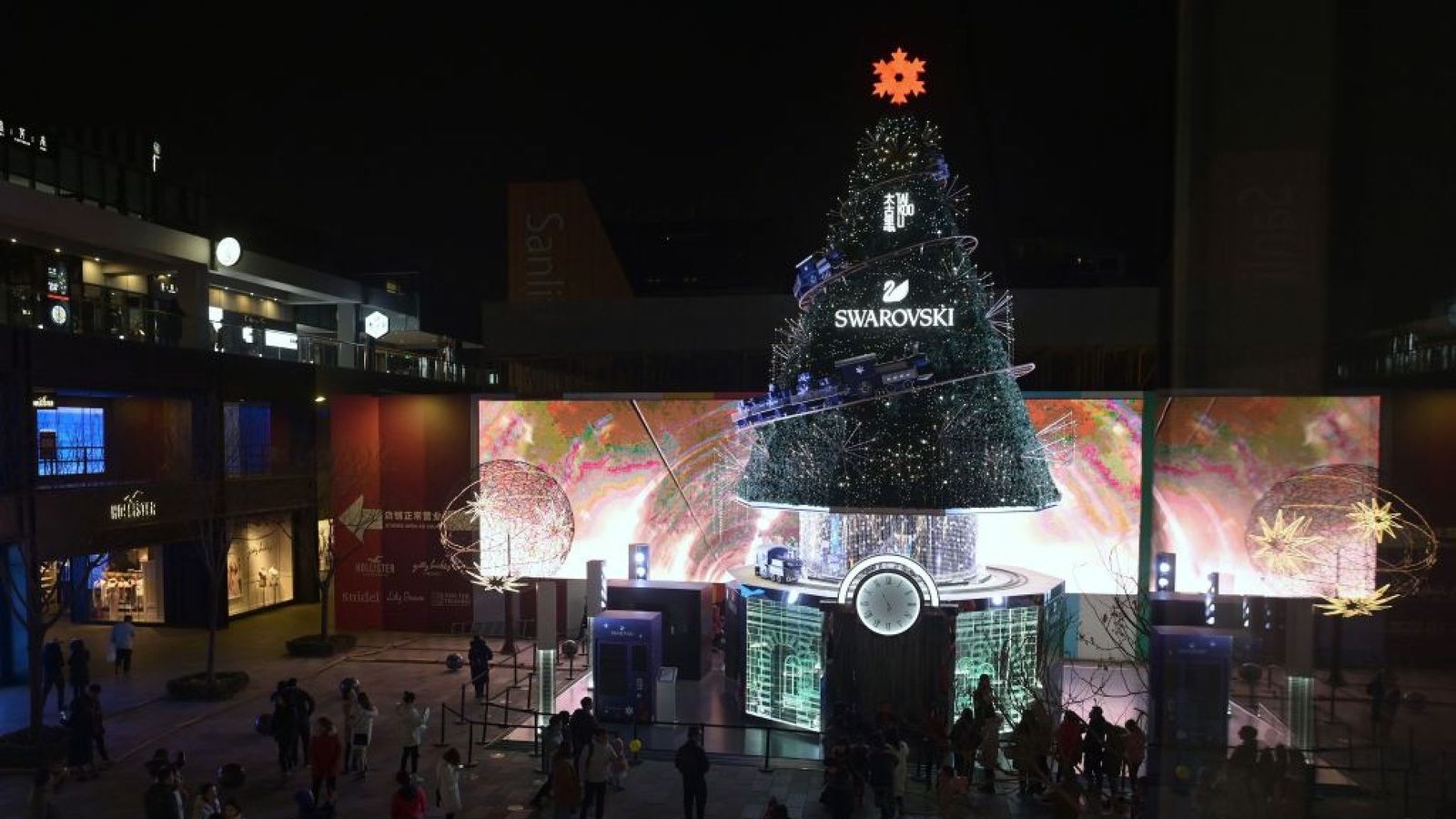
Christmas decorations have been banned in at least four cities and a county in China.
At one 27-story shopping and office complex in Nanyang, eastern China, the Christmas trees, lights and other decorations were removed within 24 hours after government officials paid a visit.
“Everything is gone and cleaned,” said Ma Jun, who works at a tutoring company in the building.
Christmas is still celebrated, albeit more as a shopping festival, across most of China, but anti-Christmas sentiment has been seen in the country before in 2014 and last year.
It is thought to come from local authorities seeking to align themselves with the wider push for cultural nationalism.
“The ongoing local reaction against Christmas is part of the wider sentiment since Xi took power,” said Zi Yang, a China expert at the S. Rajaratnam School of International Studies in Singapore.
He argues that President Xi is promoting the Communist Party as a bastion for Chinese tradition, saying: “therefore, foreign cultural elements such as Christmas are placed on the chopping block.”
An official from the Nanyang’s urban management bureau hung up when asked to comment on the removal of the festive items, according to AP.
Elsewhere in the country, official government social media accounts posted to warn that anyone found holding Christmas sales or celebrations that blocked the streets would be punished, Communist Party members should be “models of adherence to Chinese traditional culture”, and Christmas stage performances and merchandising promotions would be banned.
The state-run Global Times newspaper argues the Western media are exaggerating China’s crackdown on Christmas and reported that some of the restrictions mentioned are aimed at cleaning up roadside stalls and migrant vendors in hopes of winning an award from the Communist Party.
China’s moves to push nationalism has seen the country be forced to deny claims one million of its mostly Muslim Uighur minority are being held in internment camps, while it has also insisted “there are no such things” as re-education centres.


